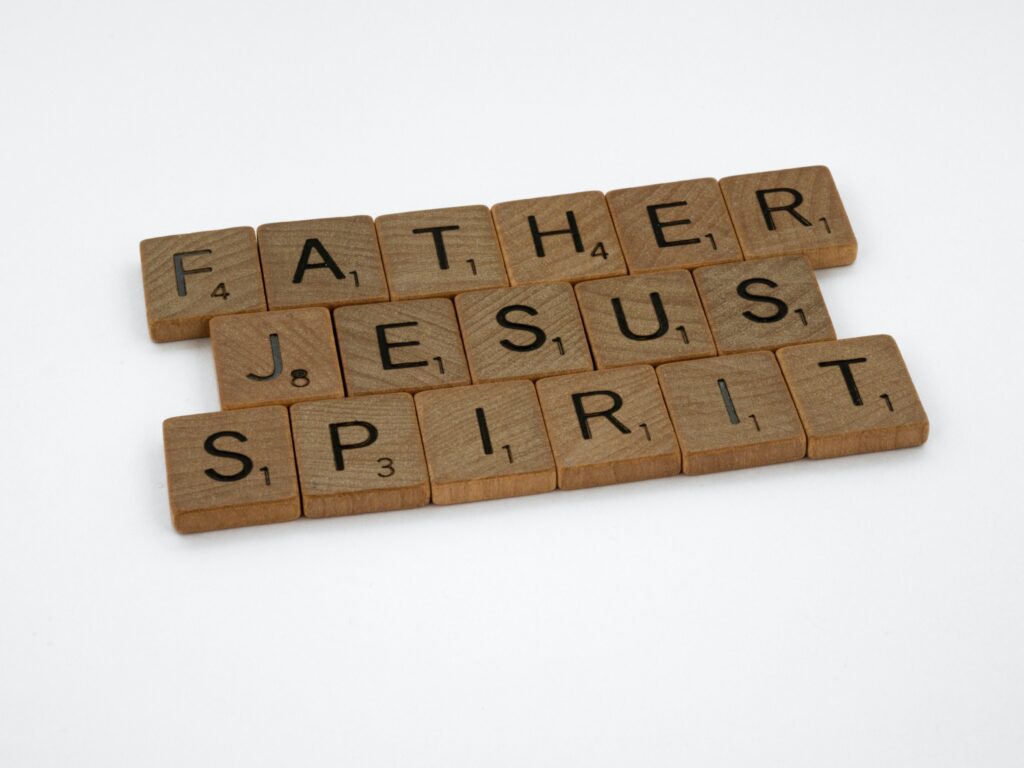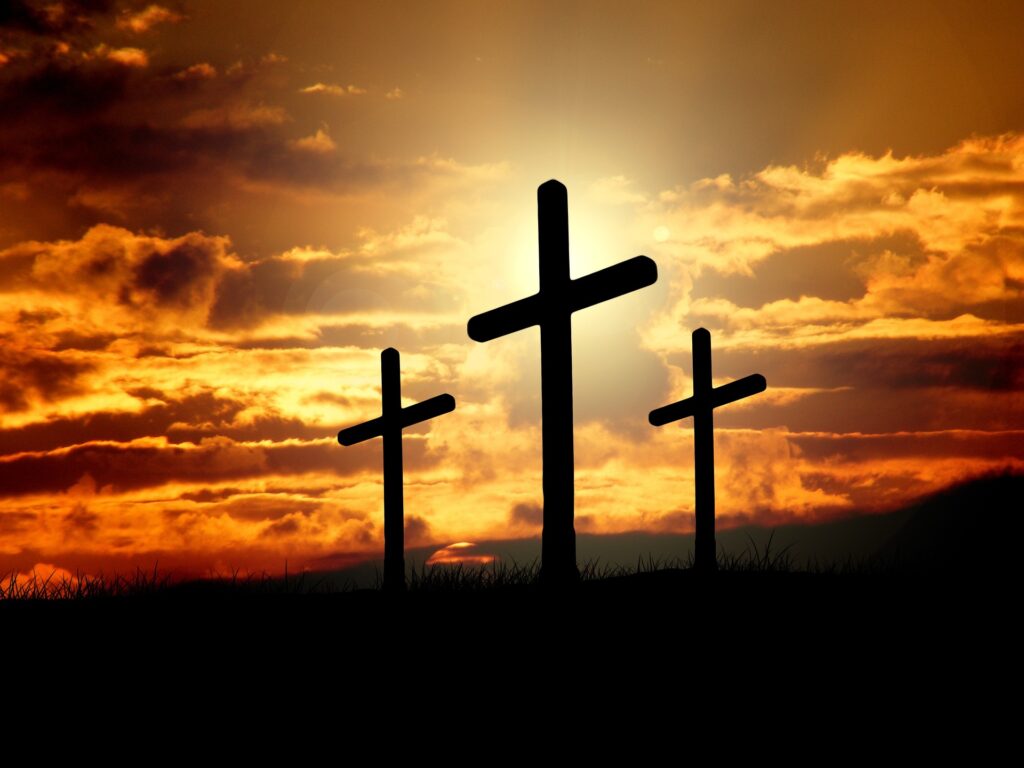Is Christianity a Religion?
One of the cliches that have grown among Christians is that Christianity is not a religion but a personal relationship with God made possible by Jesus Christ.
The good intention behind this cliche is to emphasise how, unlike other religions, Christianity is founded on God taking the first step to seek and save man rather than man seeking to placate God and be in his good books.
It also seeks to accentuate that in Christianity, Christ’s redemptive work makes it possible for us to have a father and child relationship with the Almighty, in contrast to other religions where such language cannot be realistically deployed.
However, when pressed too far, this good intention can lead to the atomisation of Christianity where it is all about my personal relationship with God in the inner recesses of my heart; where ethics, morals, discipline, the life of the Christian community, among others, become adiaphora (matters indifferent).
Also, this attitude can foster a sort of Gnosticism where the purity of the soul in its inner communion with God is all that matters, and bodily existence – including living in the polis together with other people – becomes a mere burden, a drag on the heavenly pursuit of the soul.
Is Christianity a religion, then? Yes, indeed. Is Christianity a personal relationship with God made possible by Jesus Christ? Of course. Instead of the bifurcation and false dilemma that results from this cliche, it’s better to say that Christianity is a different type of religion.
Consequently, in what follows, we will consider the various ways in which Christianity is a religion even if its theology is distinct from other religions.
What is a religion?
Different people define religion in different ways, depending on their field of study. The anthropologists will focus on religion as primarily a human development that has evolved in different ways in different human societies, the psychologists will emphasise the psychological needs that led to this development, and the sociologists will focus on the socializing influence of religion in human societies.
On the contrary, theologians will talk about religion as a human response to God’s revelation rather than human development.
Instead of trying to adjudge between these various approaches (which are mostly about the source of the religious disposition), I’ll take a comprehensive and practical definition from Wikipedia that aptly describes what we have generally come to associate the word “religion” with:
“Religion is a range of social-cultural systems, including designated behaviors and practices, morals, beliefs, worldviews, texts, sanctified places, prophecies, ethics, or organizations, that generally relate humanity to supernatural, transcendental, and spiritual elements—although there is no scholarly consensus over what precisely constitutes a religion. Different religions may or may not contain various elements ranging from the divine, sacredness, faith, and a supernatural being or beings.”[1]
The question, then, is whether Christianity contains these elements that have been historically and traditionally associated with the nature and practice of religion.
Christianity as a religion
Social-cultural system
Religion has always been culture-forming. In fact, “both words, ‘cult’ and ‘culture’, have the same etymology — from words that mean cultivation as well as worship,” according to The Hindu. “This draws attention to the fact that originally religion was integral to all things political and economic. Cult and culture were integrated.” [2]
In essence, though religion today has been mostly privatised in the service of a naked public square[3], this was not a historical phenomenon. It was impossible to separate a society (and its culture) from its religion.
And this can be seen from the transformation that occurred in the Roman empire as it moved from paganism to Christianity. The impact of Christian theology on the empire and from that to western civilisation as a whole cannot be denied.[4] Also, we have seen how the export of Christianity to many European colonies and territories in Africa and Asia led to various cultural transformations.
In like manner, the conquests of Arabian territories by Islam led to the transformation of these cultures along Islamic lines. In fact, the difference between the Turkey of today and that of the 4th century is a testament to the social-cultural power of religion even when secularism has tried to separate religion and politics.
To summarise, like other religions, Christianity has a transforming effect on cultures and civilisations. It is not just an individualistic heart encounter with God that remains hidden in the heart.
Designated behaviour and practices
Every religion has its rituals and Christianity is not exempted.
“We are wired, as it were, for ritual,” said Sohrab Ahmari, an Americal columnist. He goes on to quote a definition of ritual as a “culturally constructed system of symbolic communication” that involves “patterned or sequenced words and actions, characterized by formality, rigidity, and repetition.”[5]
His point is that ritual, as defined above, is indispensable but that “religion just combines such rituals with beliefs about the ultimate meaning of existence.” Furthermore, “together, ritual and belief regulate access to what is normally set apart, inaccessible, even forbidden – that is, the sacred.”
As Protestants, we believe in the two sacraments: baptism (Matthew 28:19-20) and the Lord’s Supper (1 Corinthians 11:24) while Catholics and the Orthodox Churches believe in seven sacraments. Whether two or seven, these are designated practices that include various detailed and deliberate rituals.
In fact, our weekly gathering on the Lord’s day (Revelation 1:10, 1 Corinthians 16:2, Acts 20:7) is a designated behaviour that includes various rituals, depending on the denomination. Whether it’s “The Lord be with you: And also with you” or “Praise the Lord: Amen,” all churches have rituals at their services.
Furthermore, we are called as believers to pray (1 Thessalonians 5:16,17), give (Philippians 4:5), fast (Luke 5:35), and study the Bible (Joshua 1:8), among other designated behaviours.

Morals and ethics
It is not necessary to show that religion involves morals and ethics since decades of reading Rousseau and Freud have led us to caricature religion as that which inhibits our self-expression and prevents us from finding personal fulfilment with its numerous moral rules and ethical principles. [6]
Christianity does not shy away from ethics and morals. After expounding on various theological themes, Paul focused the latter chapters of his letter to the Romans, Ephesians, and Colossians on various moral instructions. And moral instructions abound in his letter to the Corinthians.
Though Paul emphasised how believers have been freed from the law (Romans 6 and 7, for example), he was quick to say that while he was outside of the Mosaic law, he was under the law of Christ and not an antinomian ( 1 Corinthians 9:19-23).
In fact, Paul was unhappy with the Corinthians when they were indifferent to a member who committed a sin that even pagan religions frowned at (1 Corinthians 5:1). Christianity was never supposed to be a libertine and licentious religion. No wonder Jude condemned those who “pervert the grace of our God into a license for immorality” (Jude 4).
Beyond this, Christianity, like other religions, does not shy away from ethical formulations on publicly contentious issues like warfare, euthanasia, colonialism, assisted reproduction techniques, slavery, etc. We don’t just stay within the recess of our hearts while the world struggles with important ethical issues. Instead, there is a whole branch of theology called moral theology or Christian ethics.
Belief and worldviews
Religions have doctrines that answer to some of the most fundamental issues of human existence: metaphysics, epistemology, ethics, meaning, anthropology, etc.
Even though religions might evolve their answers to these questions or tolerate various understandings of them, what they cannot do is shy away from doctrinal formulations entirely. Moreover, some of these doctrines will be fundamental that they become measures of orthodoxy vs. heterodoxy.
Christianity is not different. We have bundles of doctrines on different important topics of theology. The Scriptures never say: just have a relationship with Jesus and you can believe whatever you want. Rather, there is a specific Jesus it calls us to believe in.
For example, the person who does not believe that Jesus is the Christ or the Son of God is an antichrist (1 John 2:20-25). Therefore, it is not enough to believe in a vague Jesus constructed by our own minds. Rather, it is Jesus, the Christ, the son of God (among other Christological formulations) that we must believe in to be described as Christians.
Similarly, we don’t just create the Christian God out of the imaginations of our own hearts. It is the God that has revealed himself in the Old and New Testament, in all the fullness of that revelation, that we are called to believe. That calls for doctrinal formulations.
No wonder that we have what has been called the catholic (universal) creeds: the Apostles’ Creed, the Nicene Creed, and the Athanasian Creed – three key formulations of Christian doctrines that have been used by the catholic church as a test of Christian orthodoxy.
(In addition, denominations also have a more expanded confessional statement that describes their views on issues that extend beyond the purview of the catholic creeds.)
In essence, the church is saying: you can’t just believe in any Christ. Is the Christ you believe in co-equal and co-eternal with the Father? You can’t just believe in any God, it must be the triune God.
In fact, theologians have described faith in three aspects: notitia, assensus, and fiducia. Notitia stands for the content of faith, assensus, the agreement with the truth value of the content of faith, and fiducia, actual trust in the content of faith. Consequently, it is impossible to just “believe in Christ” without first coming to understand who Christ is and what he has done.
A separation of Christian practice from doctrine only leads to the compromise of the Christian faith. “It is ignorance of doctrine that has rendered the professing church helpless to cope with the rising tide of infidelity,” said A.W Pink. “It is ignorance of doctrine which is mainly responsible for thousands of professing Christians being captivated by the numerous ‘isms’ of the day.”[7]
In essence, without sound doctrines, we might be worshipping an idol of our own making instead of the true God.

Sanctified places
Like other religions, we have dedicated worship places that we are supposed to treat with some reverence. Even though worship in truth and spirit is primary (John 4:24), the presence of God still sanctifies the places where believers meet.
For example, Jesus said that he is present wherever two or three persons are gathered in his name (Matthew 18:20). That is, his presence is especially manifested among his gathered people. Also, Paul describes the church as the temple of God – that is, the place of his dwelling (1 Corinthians 8:3-16, Ephesians 3:18-21, etc.).
That the presence of God in the gathering of believers calls for reverence is evident in 1 Corinthians 11. Paul complained about the way some people were in a haste to eat and drink the elements of the Lord’s Supper, thus depriving others of participating in the meal.
He went on to chastise them saying that it is in their houses that they were to eat and drink to their full. In the church, everyone was to equally participate in the meal since the purpose is not to be filled up. By depriving others, they were despising the church of God (verse 22). “Ye render the sacred assembly and the place contemptible by your conduct, and ye show yourselves destitute of that respect which ye owe to the place set apart for divine worship,” comments Adam Clarke. [8]
In essence, when we gather together as a church, we must recognise the sanctity of our gathering. And when we eat the Lord’s Supper, we must treat the elements with the utmost reverence (“holy things to holy people”). Said differently, we must discern the body of Christ in the meal and eat and drink the elements in a worthy manner (verses 27-32).

Prophecies
Though there are disagreements about whether the gift of prophecy continues in the church today or not[9], there is no denying that prophecies are important in Christian theology.
His ability to tell the future is one of the ways God showed himself superior to the gods of the other nations (Isaiah 43, 44). It’s no wonder then that scriptures are full of prophecies of things to come.
After his resurrection, Jesus showed his disciples that the law and the prophets were about him (Luke 24:44-49). No wonder the gospels were constantly referring to how Christ fulfilled various OT prophecies.
Christ himself prophesied the destruction of Jerusalem that happened in 70 AD (Matthew 24) and the church still awaits the consummation of the eschatological prophecies of Jesus and John the Revelator.
Organisation
Even in the early years of the church, there were varying degrees of organisation. The twelve apostles were the leaders of the Jerusalem church (Acts 5:12) and soon enough they appointed deacons that will serve tables while they focused on prayer and the ministry of the word (Acts 6:1-7).
Chapters later, we find the church commissioning Paul and Barnabas as missionaries to the Gentiles. When Paul established a church, he appoints elders over them (Acts 20:17ff) while he continued to move from one place to another.
By Titus 1, we see Paul delegating the duty of appointing elders over the different towns in Crete to Titus, who was Paul’s son in the ministry. We see the same with Timothy in Ephesus (1 Timothy 3).
The point here is that even in the New Testament, the church had begun to develop some organisation structure to deal with its growing complexity. In the following years, even more complex organisation structures will emerge.
Why Christianity cannot be atomised
The summary of the above section is that Christianity is a religion. We cannot atomise it to a “me and Jesus in my heart” spirituality. It is that but more.
When Jesus saves us, he does so to bring us into his new covenant community – the Church. According to John Stott, “the very purpose of his self-giving on the cross was not to save isolated individuals, and so perpetuate their loneliness, but to create a new community whose members would belong to him, love one another and eagerly serve the world. This community of Christ would be nothing less than a renewed and reunited humanity, of which he as the second Adam would be head.”[10]

Also, because the church is an eschatological community, we cannot be indifferent to the world (which still remains the creation of our God). God is going to recreate and redeem this world (Revelation 21, 22) and we will dwell with him in the new heaven and the new earth.
In anticipation of that recreation, therefore, we must “be new-creation people here and now, bringing signs and symbols of the kingdom to birth on earth as in heaven,” according to N.T Wright. “The resurrection of Jesus and the gift of the Spirit mean that we are called to bring real and effective signs of God’s renewed creation to birth even in the midst of the present age.”[11]
This is why as believers, we cannot be indifferent to the world. Yes, we must deny the world, as humanity in rebellion against God; yet, we must affirm the world as God’s creation destined for reformation and eschatological renewal (regeneration). This is why we cannot stop confronting the orders of this world with the truths of the gospel as well as doing our part to see it imitate the world to come, as much as it is possible (without falling into utopianism).
Thirdly, in Christ, God is renewing his image in us (Colossians 3:10, Ephesians 4:24) and conforming us to the image of Christ (2 Corinthians 3:18). Therefore, God does not leave us as we are, he is using the various means of grace – word, sacraments, prayer, fasting, etc – under the powerful outworking of his Spirit to transform us into the people he created and redeemed us to be.
For these three reasons and more, Christianity cannot be reduced to a “personal relationship with Jesus” divorced from community, witness, public theology, good works, moral discipline and change, and cultural (yeah, civilisational) transformation.
Christianity is different from other religions
Yet, it bears repeating that Christianity is not like other religions.
This is especially true as regards salvation. Christianity is the one religion where God becomes a man to die on the cross in order to save men from their sins. It is also the one religion where salvation is all of grace both in its objective accomplishment and its subjective appropriation. Similarly, Christianity is the only religion that is able to take both the justice and love of God seriously, both coming together on the cross.
“There is no forgiveness in this world, or in that which is to come, except through the cross of Christ… The religions of paganism scarcely knew the word … The great faiths of the Buddhist and the Mohammedan give no place either to the need or the grace of reconciliation. The clearest proof of this is the simplest. It lies in the hymns of Christian worship. A Buddhist temple never resounds with a cry of praise. Mohammedan worshippers never sing. Their prayers are, at the highest, prayers of submission and of request. They seldom reach the gladder note of thanksgiving. They are never jubilant with the songs of the forgiven.”[12]

Relatedly, Christianity is the one religion where we are so reconciled to God that we can call him Father, be confidently assured that we are his and he is ours (now and evermore), and gain constant and bold access to his presence (Romans 8:12-17).
Furthermore, even with all the elements we have identified above that make Christianity a religion, there are still differences that set it out from other religions.
Yes, Christianity transforms cultures but it does so, ideally, as Christian people carry their cross and follow Jesus who came not to be served but to serve and give his life as a ransom for many (Matthew 20:28). It is through the faithful lives, proclamation, and service (including service in political positions) of believers, and not that of the sword, that the gospel progresses and societies are transformed.
Yes, we have rituals but these rituals are not our attempts to placate God; rather, they are our joyful service to the one who has satisfied himself when he came to become man and die in our place. They are also the ways we continuously receive grace from him.
Yes, there are moral standards and ethical principles; nevertheless, we do not obey so that we can be saved but because we have already been saved by faith (Ephesians 2:8-10; Philippians 2:11-13). Moreover, we obey these standards as the path towards the restoration of God’s image in us – our becoming truly human.
Yes, we have doctrines but they are not “impractical, stodgy and relatively useless,” for Christian doctrines are such that they deepen our knowledge of God’s glory and give greater meaning to our worship (they “lead into a deeper knowledge of God and of the unsearchable riches of Christ – A.W Pink[13]). In essence, Christ “teaches doctrines in order to fill our lives with stability and grace.”[14]
Yes, we have our sanctified places and things but we never reduce them to mere superstitions seperated from the reality to which they point – God’s spiritual presence.
Yes, we have prophecies but Christ is the anchor of these prophecies — the bulk of OT prophecies look forward to his first coming, and those of the NT look forward to his second coming.
Yes, we have organisation structures but the church never finds its life in structures but in the abiding, directing, and renewing work of the Spirit of God.
Conclusion
Though the focus on Christianity as a personal relationship with Jesus is good-intentioned, it has contributed to the weakening of Christianity in the West, a weakness already diffusing to parts of the Global South.
The secular world has told us to privatise our faith and we have concurred. We have become silent about public issues – political, social, and cultural. And even when we speak, we do so as children of the enlightenment rather than Christian believers. We don’t even know that there is something called public theology.
Privatisation of faith has also led us to discountenance doctrines. In a world where spirituality is to be preferred to religion, Christianity has become a feeling devoid of doctrines.
In a bid to get everyone on the boat, we have also gone mute about morals and ethics in addition to doctrines. We are content if the pews are full even if those who sit there know nothing about Christian theology or show any commitment to delighting in God’s law.
Our church buildings no longer communicate any sense of reverence for the fact that the church is the temple of God; neither do our worship services.
Prophecies have been turned to mere gimmicks with self-styled prophets now predicting the scores of football matches and the outcomes of presidential elections. Even our eschatological expectations have become so exotic and devoid of Christ. It’s almost as if we will be content to be in “heaven” even if Christ is not there.
And in a bid to emphasise the presence of God’s spirit as what gives meaning to our organisation structure, we have done away with any resemblance of order, forgetting Paul’s command that “all things should be done decently and in order” (1 Corinthians 14:40).
If we are going to recover the faith of our fathers, then we must start by ditching the cliche that “Christianity is not a religion” and start embracing the full-orbed Christian religion that the Scriptures present to us.
Faith of our fathers! living still
in spite of dungeon, fire and sword;
O how our hearts beat high with joy
whene’er we hear God’s glorious Word:
Faith of our fathers, holy faith!
We will be true to thee till death.
Our fathers, chained in prisons dark,
were still in heart and conscience free;
and blest would be their children’s fate
if they, like them, should die for thee: [Refrain]
Faith of our fathers! God’s great pow’r
shall draw all nations unto thee;
and through the truth that comes from God
his people shall indeed be free: [Refrain]
Faith of our fathers! we will love
both friend and foe in all our strife,
and preach thee, too, as love knows how
by witness true and virtuous life: [Refrain]
Footnotes
[1] Wikipedia. Religion. Available at: Religion – Wikipedia
[2] The Hindu. What Creates Culture also Creates Cult. Available at: What creates culture also creates cult – The Hindu
[3] See OS Guinness, The Case for Civility: And Why Our Future Depends On It (New York: Harper Collins, 2018).
[4] See Glen Scrivener, The Air We Breathe: How We All Came to Believe in Freedom, Kindness, Progress, and Equality (Charlotte: The Good Book Company, 2022).
[5] Sohrab Ahmari, The Unbroken Thread: Discovering The Wisdom of Tradition in an Age of Chaos (New York: Convergent Books, 2021), p. 85, kindle.
[6] See Carl Trueman, Strange New World: How Thinkers and Activists Redefined Identity and Sparked the Sexual Revolution (Illinois: Crossway Publishers, 2022).
[7] A.W Pink, The Sovereignty of God (Pennsylvania: Banner of Truth Trust, 2014), p. 132.
[8] Adam Clarke. Commentary on 1 Corinthians 11:22. Available at: 1 Corinthians 11 – Clarke’s Commentary – Bible Commentaries – StudyLight.org
[9] See Richard Gaffin, Perspectives on Pentecost (New Jersey: Presbyterian and Reformed Publishing Company, 1979)
[10] John Stott, The Cross of Christ (London: InterVarsity Press, 2017), p. 295.
[11] N.T Wright, Surprised by Hope (London: HarperCollins Publishers Ltd., 2008), 280, Scribd.
[12] W.M Clow in Stott, The Cross of Christ, p. 298.
[13] Pink, The Sovereignty of God, p. 132.
[14] Sinclair Ferguson, The Christian Life: A Doctrinal Introduction (Illinois: Banner of Truth Trust, 2017), p.8



